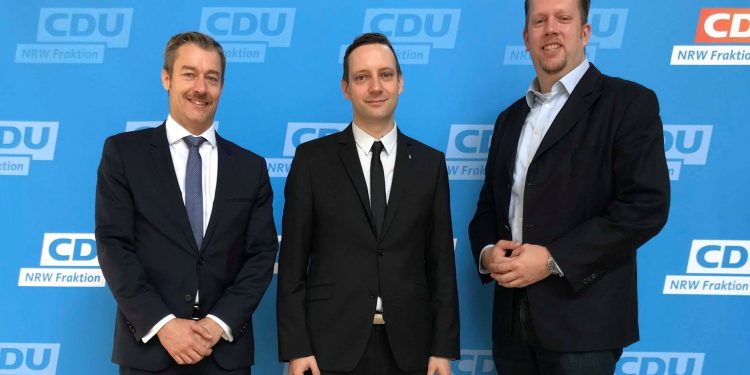Tristan Azbej: Hungary Helps Programme recognised in North Rhine-Westphalia, Germany

The 'Hungary Helps Programme', which coordinates the Hungarian government’s humanitarian efforts in crisis regions, is recognised in North Rhine-Westphalia, Tristan Azbej, Minister of State of the Prime Minister’s Office for Helping Persecuted Christians said on Tuesday assessing his visit to the most populous state of Germany. The basic tenet of Hungarian policy is that help must be channeled to crisis regions, instead of importing problems to Europe, he added. Picture above: Balázs Szegner, Tristan Azbej, Marco Schmitz (left to right) Source: Tristan Azbej's Blog
there were politicians from the Landtag who shared the realisation that mass immigration involves major security risks, for instance, as a result of the activities of people smuggling criminal organisations, he said.
Reaching an agreement on the Hungarian government’s policy rejecting immigration also varied from partner to partner, but “we managed to find common points in every instance,” and everyone described Hungary’s humanitarian policy and the Hungary Helps Programme as exemplary, Mr Azbej highlighted.
He said at his meetings he sought to present Hungary’s approach to migration and humanitarian assistance by highlighting connections between the two, pointing out that
“the Hungarian government is protecting Europe and Hungary with its stringent migration policy, while with the Hungary Helps Programme it is improving the situation of those living in crisis zones, – at the source of migration, – paying particular, but not exclusive attention to Christian communities.”
The basic tenet of this policy is that help must be channeled to crisis regions, instead of importing problems to Europe, he added.
The Minister of State highlighted that as part of his visit, in Cologne he will attend the conference of Hungarian-speaking Catholic priests in Western Europe where he will introduce what Hungary does for persecuted Christian communities, and on behalf of the government he will inaugurate a memorial plaque of Hungary’s last Prince-Archbishop, Cardinal József Mindszenty in Cologne Cathedral.
Source: kormany.hu/en



